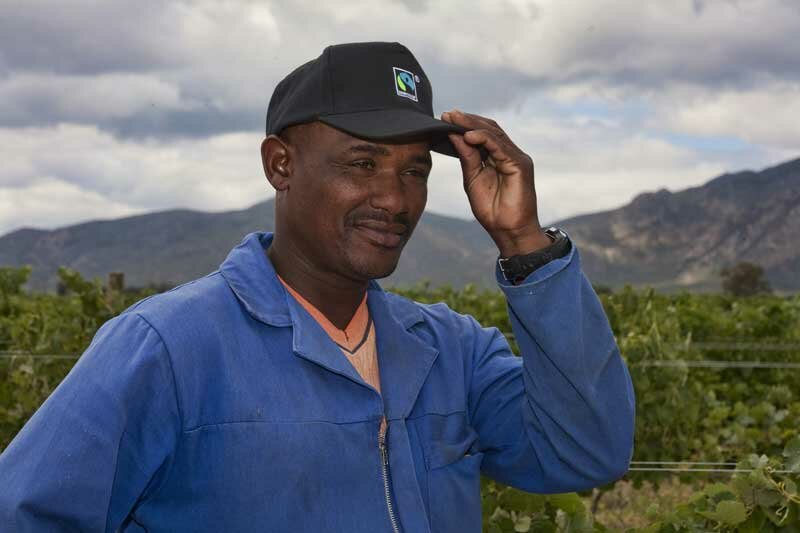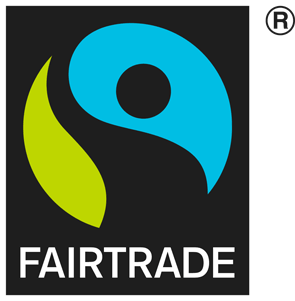Fairtrade is an ethical certification whose main aim is to promote more equality and sustainability in the farming sector. A product that carries the Fairtrade Certification Mark has met the rigorous Fairtrade Standards, which focus on improving labour and living conditions for farming communities and on promoting a way of farming that doesn't harm either people or the environment.
Dating back to the 1960s, Fairtrade started with small initiatives by individuals or groups, usually faith-based organisations or social entrepreneurs, who wanted to make a difference in developing countries by buying their products in an ethical manner. This included paying fairer prices and establishing direct trading partnerships with producers, thereby sharing knowledge and information on production, market and quality requirements.
Today Fairtrade is the world's most trusted ethical certification system. There are thousands of Fairtrade certified companies in the world (producers, manufacturers and traders) that make a difference every day through Fairtrade trading.
> > > Download our Fairtrade at a Glance and Fairtrade Market at a Glance.
WHAT ARE THE BENEFITS OF FAIRTRADE?
Fairtrade creates more opportunities for those farming communities who have been economically disadvantaged or marginalised by the conventional trading system. The benefits include:
- ensuring better trading, working and living conditions through Fairtrade Standards;
- providing a Fairtrade Development Premium that small-scale farmers (in the case of a co-operative) and farm workers (in the case of a commercial farm) can invest in their businesses or to empower their communities;
- supporting sustainable production and protection of the environment for a better future.
> > > To learn more about how Fairtrade works, visit the Fairtrade Standards page
> > > To read about the impact on the lives of producers and workers, visit our Producers section
THE FAIRTRADE Mark
The Fairtrade Mark is now the most widely recognised and trusted ethical label in the world. When a product carries the Fairtrade Mark, it means that both producers and traders have met Fairtrade Standards and that they are audited annually to ensure compliance.
The graphic symbol inside the Fairtrade Mark shows a person with a raised arm representing the optimism of producers. The blue sky of potential is connected to the green of growth.
THE HISTORY OF FAIRTRADE
The concept of 'fair trade' has been around for over 40 years, but a formal labelling scheme didn't get off the ground until the 1980s.
1988 - launch of the first Fairtrade label, Max Havelaar, under the initiative of the Dutch development agency Solidaridad. The first Fairtrade coffee from Mexico is sold into Dutch supermarkets. It is branded 'Max Havelaar', after a fictional Dutch character who opposed the exploitation of coffee pickers in Dutch colonies.
Late '80s/early '90s - The Max Havelaar initiative is replicated in several other markets across Europe and North America. Each initiative has its own label and name.
1997 - The Fairtrade Labelling Organisations International (FLO), now called Fairtrade International, is established in Bonn (Germany) to unite the labelling initiatives under one umbrella and establish worldwide standards and certification.
2002 - Fairtrade International launches the Fairtrade Certification Mark. The goal of having one mark used across markets is to improve the visibility on supermarket shelves, facilitate cross border trade and simplify export procedures for both producers and exporters.
2004 - FLO-Cert is established. It is an independent certification body specialising in Fairtrade audits.
2007 - 24 Fairtrade organisations (the so-called Labelling Initiatives) are members of Fairtrade International. They develop and promote Fairtrade in their respective markets - all located in developed countries, mainly Europe, USA, Canada, Australia and New Zealand, and Japan.
2009 - Fairtrade Label South Africa (FLSA) is established as the first Fairtrade Marketing Organisation in the developing South. For the first time a producing country is actively promoting Fairtrade in the local market and working on fostering South-South trade on Fairtrade principles (different to the traditional South-North export market).
2010 - The FLSA model sets the example for other emerging markets such as Brasil and Kenya, where talks to introduce Fairtrade products locally are underway

FAIRTRADE AND FAIR-TRADE?
Fair Trade (two words) refers to the concept of ethical trading and therefore refers to all initiatives (including craft and tourism) that work to achieve it.
Fairtrade (one word) is the leading fair trade movement in the agricultural sector. Its name and brand (the FAIRTRADE Label) are owned by Fairtrade International and only companies certified against Fairtrade Standards can use it and apply the label on their products.



